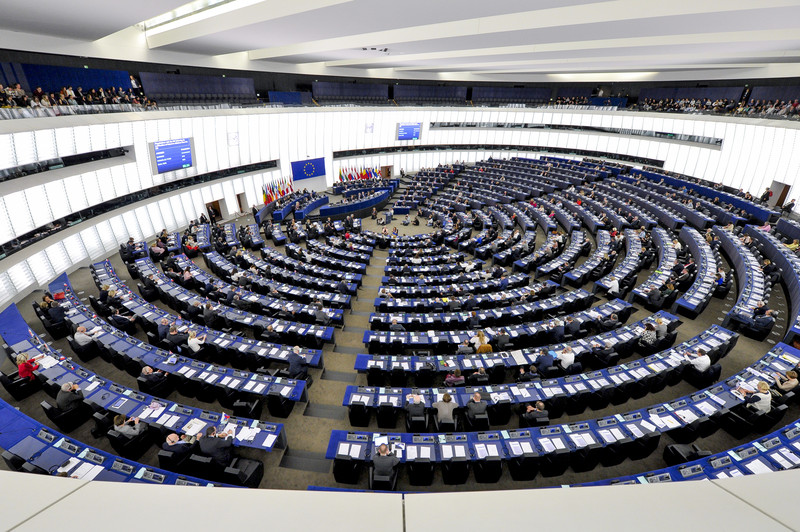Giuseppe Sandro Mela.
2019-02-03.

EU Oberver è una delle testate giornalistiche più liberal socialiste che di più non sarebbe possibile: gli stipendi dei redattori dipendono strettamente dai voleri dell’attuale eurodirigenza.
Tuttavia c’è qualcosa di nuovo oggi nel sole, anzi, di antico:
«un volgo disperso repente si desta»
La conseguenza è immediata: lo stile è davvero ben diverso da quello solito.
*
Nel vano quanto disperato tentativo di impedire agli identitari sovranisti anche solo di vivere dopo le elezioni di maggio che rimescoleranno per benino le carte nell’europarlamento, i liberal socialisti hanno presentato in europarlamento una mozione splittata in due tranche.
Attenti perché è viscida come ogni cosa loro pertiene.
«German centre-right and French far-right MEPs have tried, unsuccessfully, to torpedo a new rule which will require MEPs with senior posts to sign a document promising to behave appropriately »
*
«The new rule was adopted on Thursday (31 January) with a broad majority, and relates to a recently-adopted code of appropriate behaviour for MEPs»
*
«The new rule was adopted as part of a resolution on the parliament’s new rules of procedure, which will also lead to some increased transparency of MEP meetings with lobbyists»
*
«It was voted on in two parts»
* * *
«The first was about parliament simply declaring in its resolution that MEPs “shall refrain from any type of psychological or sexual harassment and shall respect the code of appropriate behaviour for members of the European parliament.”»
*
«This amendment was adopted with an overwhelming majority of 622 against 16, with eight MEPs abstaining»
* * *
«The second part was about the actual rule that made signing the declaration on the code a precondition for getting any of the key posts»
*
«The rule states that MEPs who have not signed a declaration to respect the code, will not be able to be elected as president or vice-president»
*
«This was supported by 493 MEPs, with 111 voting against, and 26 abstaining»
* * *
Il cuore del problema risiede nel fatto che l’intera dichiarazione è un peana dell’ideologia liberal socialista.
Votarlo implica dichiararsi a favor di simile Weltanschauung.
Quindi, non potrebbe essere nominato presidente o vice-presidente chiunque non sia un liberal socialista.
Se non fosse tragica realtà sarebbe financo da sorriderci sopra.
Ci si ricorda il regolamento del 21 novembre 1922? ‘Chiunque può fare il presidente della camera o del senato purché sia fascista.’
Cambia i nomi, ma la sostanza è sempre la stessa.
Solo che i liberal socialisti non hanno la memoria storica.
* * * * * * *
Questa volta però è successo qualcosa di nuovo.
Molto prudentemente EU Observer titola:
«German, French MEPs tried to block #MeToo measure»
Tedeschi e francesi. Fate voi.
«This was supported by 493 MEPs, with 111 voting against, and 26 abstaining.
Opposition came mainly from 30 German MEPs who sit with the centre-right European People’s Party (EPP) – almost the entire contingent of deputies from Angela Merkel’s Christian Democratic Union party.
It was also opposed by 23 French MEPs, most of them from the far-right Rassemblement National (National Rally).
Of the 111 MEPs who voted against, 57 sit with the pro-EU, centre-right European People’s Party (EPP), and 31 with the far-right, eurosceptic Europe of Nations and Freedom (ENF).
No ENF member voted in favour, but it did receive support from a majority of the EPP (108 MEPs), the largest group in the parliament.
One reason for opposing the measure was given by German MEP Hans-Olaf Henkel, who sits with the European Conservatives and Reformists (ECR).»